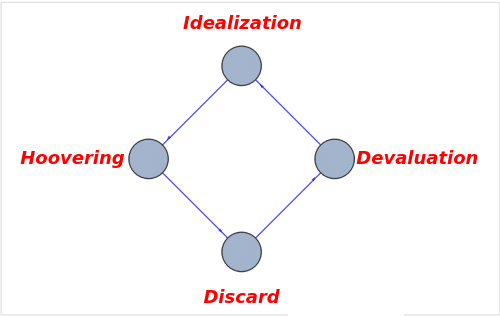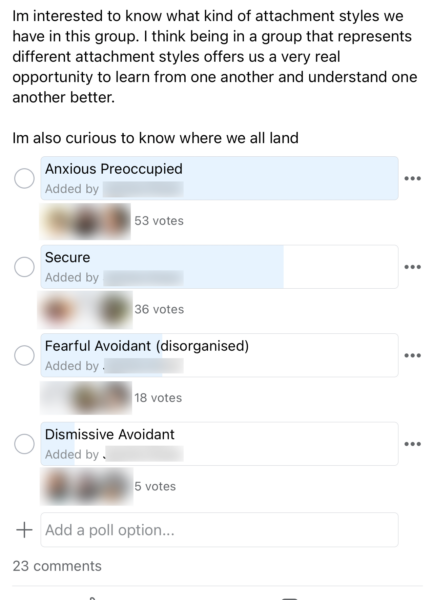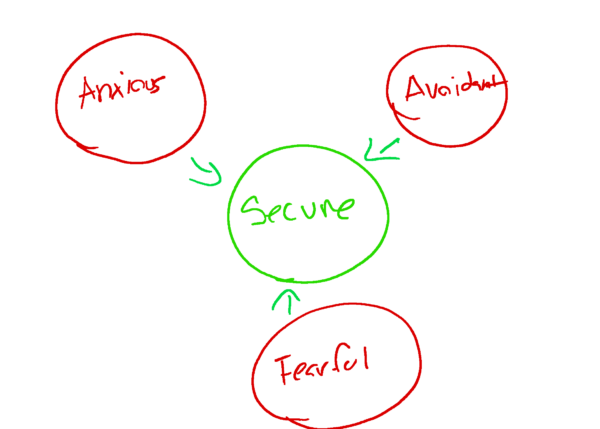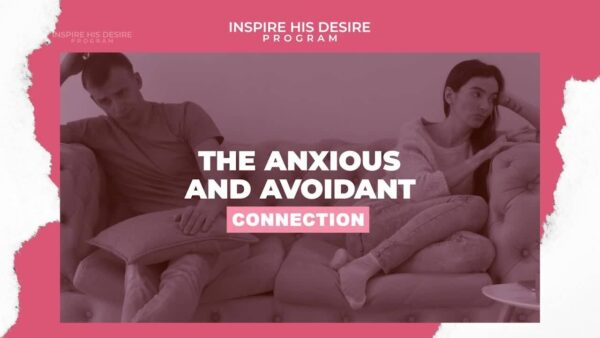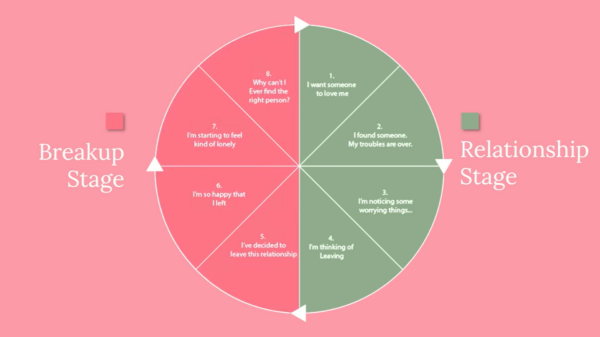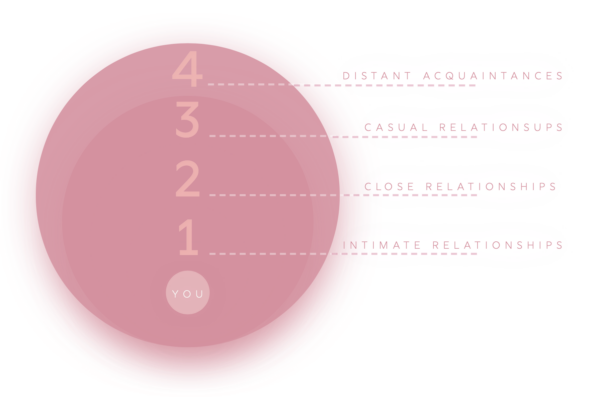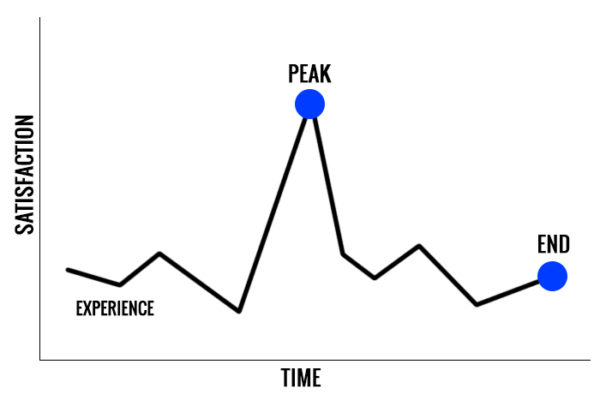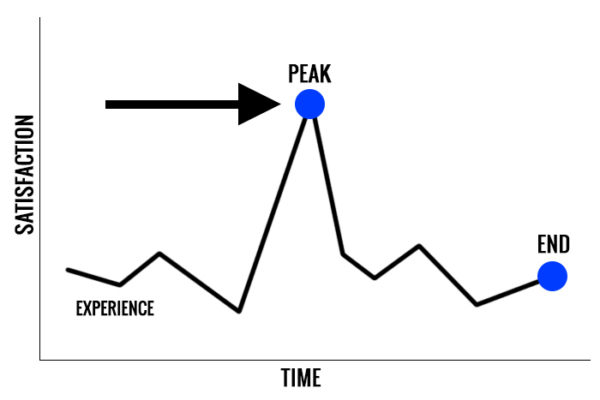I think asking if it’s bad to get back with an ex is actually the wrong question to be wondering.
In my opinion, getting back with an ex doesn’t have to be bad. In fact, we’ve had multiple success stories who married their ex: Here, here and here. I’m certain if you were to ask them they wouldn’t say that it was “bad” to try to get an ex back.
Sure, everyone always has an opinion about “getting back with exes.” I can’t tell you how often, after I tell people I specialize in breakups that they scoff at me or are even blatantly rude stating something to the effect of,
“Once an ex, always an ex.”
Or
“Why would you ever want to get back with an ex.”
Instead of shaming someone for what their heart desires I find it’s a lot more helpful to help them understand what it is they are truly attempting to accomplish by having them ask themselves the seven following questions
- Are You Prepared To Go Against The Odds?
- Does Your Ex Have Five Or More Narcissistic Traits?
- Have You Worked To Become More Secure?
- Will You Be Able To Handle The Backlash From Your SOI or Their SOI?
- Are You Falling Victim To The Peak End Rule?
- Will You Be Ok If You Fail?
- Will You Always Regret Not Trying?
Think of these seven questions as a gauntlet. If you can answer them all correctly then “good or bad” shouldn’t really matter to you.

What Are Your Chances of Getting Your Ex Boyfriend Back?
Take the quizQuestion #1: Are You Prepared To Go Against The Odds?
I’ve written many articles in the past about the average percentage of exes returning.
Always I make the argument that no honest, peer-reviewed study has been done.
Thus, we’ve had to rely on our own internal studies, which can skew the results slightly.
That’s because one of our specializations is helping individuals try to get their exes back.
Naturally, our statistics appear to perform better than the baseline, as one would expect. However, the question here isn’t so much about the odds of getting your ex back.
Instead, it’s about the chances of not only reuniting but also staying together, an important distinction.
One of the things I’m most proud of, is the numerous success stories we’ve encountered.
A few months ago I wrote this article:
It discussed the optimal wait time for attempting to get an ex back, and whether it’s wise to wait a long time.
At first glance, this might not seem relevant to our current topic.
Yet, I conducted a study within that article examining how often 12 couples, whom I’d interviewed, stayed together.
Here was the breakdown.
- 33% (4 out of 12) were still together
- 50% (6 out of 12) had broken up again
- 17% (2 out of 12) were inconclusive
That last category represents couples from whom I didn’t hear back or couldn’t verify their current relationship status.

What Are Your Chances of Getting Your Ex Boyfriend Back?
Take the quizEven discounting the inconclusive cases, we’re looking at a 40% long-term sustainability rate, which aligns with our findings.
We’ve discovered that most of our clients who succeed in getting their exes back end up breaking up again.
Hence, the first question everyone should ask before embarking on this journey isn’t necessarily, “Is it bad that I want my ex back?”
Rather, it should be, “Are you prepared to potentially play against the odds?”
Consider that there’s arguably only a 40% chance of maintaining a long-term relationship even if you do get back together. If you’re willing to roll the dice on those odds, then by all means, push forward.
If not, it might be time to consider moving on from your ex.
Question #2: Does Your Ex Have Five Or More Narcissistic Traits?
Narcissism is something my wife and I have made a point of studying extensively this year.
Our aim to help our clients understand if their exes exhibit or are prone to narcissistic tendencies. However, identifying whether your ex is a narcissist is crucial.
Many people often misconstrue the presence of one narcissistic trait as indicative of narcissism, but that’s simply untrue.
To qualify as a narcissist, an individual must exhibit five or more of the following nine traits:
- A grandiose sense of self-importance.
- Preoccupation with fantasies of unlimited success, power, brilliance, beauty, or ideal love.
- Belief that he or she is special and unique and can only be understood by or should associate with other special or high-status people or institutions.
- Requirement for excessive admiration and regular fishing for compliments.
- High susceptibility to flattery.
- A sense of entitlement.
- Interpersonal exploitation.
- Lack of empathy, unwillingness, or inability to recognize or identify with feelings and needs of others.
- Envy of others or belief that others are envious of them.
- Display of arrogant, haughty, rude, and abusive behaviors or attitudes.
So, what’s the big deal if get back into a relationship with one of these individuals?
Well, if you reenter a relationship with an ex who is a narcissist, you may find yourself trapped in the narcissistic abuse cycle,
Which consists of four main stages:
- The Idealization Stage, often referred to as the honeymoon phase, where the narcissist places you on a pedestal.
- The Devaluation Stage, during which they lose interest, no longer prioritize you, and start to belittle and devalue you.
- The Discard Stage, where they break up with you, severing the connection and often ghosting you.
- The Hoovering Stage, named after the vacuum cleaner brand, in which they try to draw you back into their sphere.
This cycle, idealize, devalue, discard, hoover, repeats itself continuously.
Recognizing whether your ex is likely a narcissist is crucial, as this cycle could trap you and hinder a happy, healthy long-term relationship.
So, watch out for signs of five or more of the nine narcissistic traits in your ex. If they exhibit five or more, they could likely be diagnosed as a narcissist.
While a professional would need to make a formal diagnosis, you don’t necessarily need to be a professional to do your personal audit and make decisions affecting your emotional well-being.
If you think you might be entering a relationship with a potential narcissist, your emotional well-being could be at risk.
Question#3: Have You Worked To Become More Secure?
We’ve observed that most of our clients, when they come into our orbit, exhibit anxious tendencies.
In fact, we’ve polled our community and a majority of the individuals there admitted to having anxious attachment styles.
Now, people with anxious attachment styles often display codependent tendencies.

What Are Your Chances of Getting Your Ex Boyfriend Back?
Take the quizThis means their entire world revolves around their ex and they struggle to find happiness independently. They consistently rely on others to bring them joy.
One remedy for this is to cultivate what I call a “secure attachment gravity.”
From an attachment style perspective, a common misconception is that your attachment style is fixed, which isn’t true.
Attachment styles are fluid.
If you go through a particularly tough time in your life, it can significantly impact your personal attachment style, making you more anxious or avoidant.
Conversely, if you possess a secure attachment style and enter a relationship with someone insecure, your secure attachment style can influence them positively.
This is where the “gravity” component comes into play. Much like gravity, they are drawn towards you, and your influence can not only help them heal their attachment style but also lead by example.
One factor contributing to the low success rate of long-term stability in relationships is that many people reunite too quickly without a proper understanding of what being secure truly entails.
A common scenario we encounter is the pairing of an avoidant ex and an anxious client.
I literally have an entire section dedicated to this pairing in my program.
When a breakup occurs, and the anxious client comes to us, we work diligently to help them develop more secure attachment tendencies.
What often happens is that by applying our strategies and the “no contact” rule, clients manage to get their exes back.
However, they make little progress in shifting from an anxious attachment style to a secure one, which can sometimes take years. So, when they reenter the relationship with the same problems.
The anxious tendencies resurface, triggering the avoidant tendencies in the ex, leading to another breakup, and they find themselves stuck in a detrimental cycle.
This is where being secure comes into play.
A secure person would know when to establish boundaries and when to give their partner space.
As a result, the avoidant ex might start to become more secure themselves, possibly for the first time in their lives.
They find themselves in a relationship with someone who can lead by example.
Question #4: Will You Be Able To Handle Your SOI And Their SOI
The sphere of influence is a concept I coined that essentially describes your ex’s and your personal inner circles.

What Are Your Chances of Getting Your Ex Boyfriend Back?
Take the quizThese are the individuals you surround yourself with whose opinions can significantly shape your own.
I’ve created numerous compelling graphics to depict this,
But one aspect that not many discuss is the potential backlash from either your sphere of influence or theirs if you decide to reconcile.
Many people are ill-prepared for this, primarily because, like it or not, your sphere of influence consists of individuals close to you whose proximity impacts your opinions.
Perhaps you are unwavering in your decision to get your ex back, which is fine, but your ex might be on the fence. They might experience a surge of nostalgia when with you and wish to reconcile, but once alone, the opinions of their sphere of influence can instill doubts in their mind.
Complicating matters is the fact that many people aren’t particularly supportive of the idea of getting back together.
Sometimes when I inform individuals that I am a breakup coach, they react negatively, they incorrectly assume I’m trying to propagate “unhealthy relationships.”
The truth is my ultimate goal is to educate individuals on what a healthy relationship often entails. I can’t tell you how often I tell people to NOT get back with exes.
But I’m getting off topic.
Often the spheres of influence harbor all these preconceived notions about you and your ex, and these perceptions can exert considerable pressure on both of you.
Hence, it’s crucial that you both understand how to navigate this potential backlash should you decide to reconcile.
Question #5: Are You Falling Victim To The Peak/End Rule?
The peak-end rule is a scientific principle that describes how we remember memories.
Many believe that we remember experiences as a whole, but the peak-end rule asserts that we remember experiences based on two distinct points: the peak moments and the end moments.
Once again, here’s a handy dandy graphic:
What I’ve often found, however, is that clients misremember their relationship.
They tend to focus solely on the peak moments, overlooking the entire experience they had in the relationship.
To illustrate, let’s consider percentages.
Suppose that you were entirely unhappy in 70% of your relationship with your ex, but the highs in the remaining 30% were so intense that you only seem to focus on those instances.
Generally, this is not indicative of a great relationship.
If you were to reconcile, you would still be returning to a relationship where 70% of it was miserable.
If the majority of your experiences were negative, then you are likely falling victim to the peak-end rule, recalling only the peak moments and not the moments in between the peak and the end.
These in-between moments are crucial when considering whether to get back with your ex.
Unfortunately, this selective memory is something we often see in individuals with anxiety.
When anxious and problem-solving, you might tend to focus more on what you’ve lost, rather than what you’ve potentially gained.
Therefore, I always advise my clients to step back and refrain from deciding whether to get their exes back until they’ve had a chance to become more secure. Interestingly, in about half of the cases, our clients ultimately decide they don’t want their ex back anymore because they realize that 70% of the relationship made them miserable.
Question #6: Will I Be Ok If I Don’t Get Them Back?
If you’ve ever watched or listened to any of my success story interviews, you’ll notice that I consistently probe our successful clients for the most crucial factor that led to their success.
After interviewing hundreds of these individuals over the years, I’ve found that success fundamentally boils down to one’s ability to be okay with not getting their ex back.
Curiously, it seems that something magical happens when they are ready to accept not getting their ex back: their ex suddenly shows interest in returning, or they start making meaningful progress in their life, which draws their ex back into the picture.
We have a theory about why this phenomenon occurs.
We’ve observed that most of our clients’ exes display avoidant attachment styles.
Typically, avoidant individuals don’t miss their exes until they become unavailable or seem to move on from the relationship.
Hence, being okay with not getting their ex back is about healing and becoming indifferent towards the outcome.
It tends to emit a vibe of having moved on, which can trigger the avoidant ex’s interest in returning, or cause them to succumb to nostalgia.
Thus, being okay with the prospect of failure is a vital part of the process.
If you can’t cope with the idea of failure, you are unlikely to be successful in your quest to win your ex back.
Question #7: Will You Always Regret Not Trying?
Many people come to me asking, “What are the odds I’ll get my ex back? Do I have a chance?”
They’re asking a question I can’t answer because, in truth, no one can answer that definitively.
The only person who can provide a reliable answer about your chances of getting your ex back is your ex and even then, their answer can fluctuate based on the day, the moment, or if they’ve entered into a new relationship, among other factors.
What I believe everyone should ask themselves instead is, “Will I regret not trying everything I could to get my ex back?”
The critical factor isn’t necessarily asking this question, which should be a given, but rather when you ask it.
If you pose this question right after a breakup, your answer will most likely be a resounding YES.
However, if you ask yourself this question after a period of no contact, during which you’ve focused on moving on, and you still answer “yes,” then maybe it’s worth giving it a shot, assuming none of the previous questions I’ve suggested have raised any red flags.
On the other hand, if you think, “You know what? I’m fine without them,” then you probably won’t regret not trying to get them back.
And that’s the beauty of questions six and seven.
They go hand in hand.
But that hand in hand aspect creates a great paradox: you need to be okay with not getting them back, but if you aren’t okay with not having them, you might think, “I won’t regret my decision not to try.”
The crux of the matter is regret.
Consider the “deathbed argument.”
If, in your final moments, you believe you’d genuinely regret not giving it a shot with “Jimmy, Bobby, Billy, or Cassandra,” (my pretend names for your exes) then okay, give it a try.
But if you apply the “deathbed argument” right now in this very moment and conclude that you’re okay and wouldn’t regret not trying, then I think you already have your answer.
